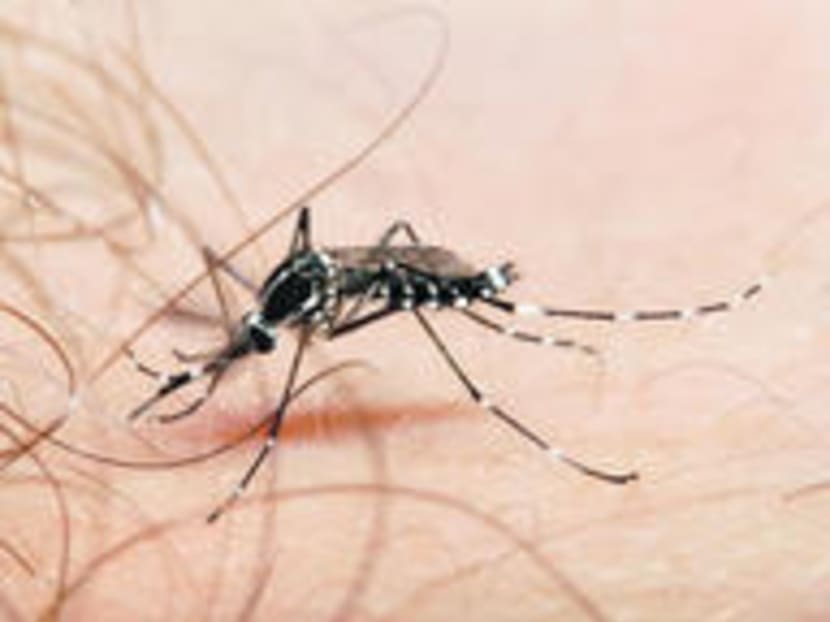Dengue cases down, but vigilance urged
SINGAPORE — After two years of soaring dengue figures, the number of cases seen weekly this year are down sharply compared to incidents during the same period in the previous two years.

The number of dengue cases seen weekly this year are down sharply compared to incidents during the same period in the previous two years. Photo: Bloomberg
SINGAPORE — After two years of soaring dengue figures, the number of cases seen weekly this year are down sharply compared to incidents during the same period in the previous two years.
This is as Singapore enters the traditional peak season for dengue during the warmer months of June to October, but it does not necessarily signal the end of the epidemic, and the National Environment Agency (NEA) has urged continued vigilance against mosquito breeding.
According to the latest figures posted on the NEA’s website, 180 dengue cases were reported last week. In comparison, there were between 400 and 500 dengue cases weekly during the same period last year, while 2013 recorded between 600 and 700 cases.
Nonetheless, the number of dengue cases this year — 3,349 as of last night — remain higher than in 2012, the year before Singapore faced its worst dengue epidemic where more than 22,000 people were infected and seven died. Last year, there were 18,335 dengue cases and five deaths.
The epidemic was due to a switch in the dengue serotype being transmitted from DENV-2 to DENV-1, against which Singapore has low population immunity. To tackle the mosquito-borne disease, the NEA stepped up checks in homes and public places. More officers were recruited under NEA’s vector-control team, while insecticides were sprayed indoors and free insect repellent was also distributed to households. The agency also deployed new tools to fight dengue such as the use of Gravitrap surveillance systems, which are cylindrical devices with sticky surfaces to trap Aedes mosquitoes.
Asked if Singapore had passed the epidemic, an NEA spokesperson, noting the latest weekly number of cases had increased from 109 the week before, said this increase was a “timely reminder that we need to remain vigilant and continue to work as a community to keep dengue cases in check”. DENV-1 is still the dominant strain so far, said the spokesperson, also noting that a large proportion of the population is still susceptible to dengue infection because of the lack of immunity.
Infectious diseases professor Annelies Wilder-Smith, of Nanyang Technological University’s Lee Kong Chian School of Medicine, said dengue epidemics are usually difficult to predict, but in the past two decades, most dengue endemic countries have witnessed a cyclical pattern of dengue peaks, with the highest occurring every three to five years. “What we are seeing now is totally expected and normal. After a year with high dengue activity, we usually see a year with low activity because of herd immunity.”
However, this does not mean Singapore should reduce vector-control efforts, said Prof Wilder-Smith, adding that some experts “would argue to even increase vector-control measures during lull periods to more effectively prevent or at least reduce future outbreaks”. There could also be more dengue cases next year or in the following year, due to the introduction of a new genotype, or the lowering of herd immunity.
Members of Parliament (MPs) whom TODAY spoke to felt the dengue prevention messages have sunk in with most Singaporeans, with Mr Zaqy Mohamad (Chua Chu Kang GRC) noting there is now greater awareness of the situation among his residents.
Dr Lee Bee Wah (Nee Soon GRC) said more people have been observed checking various receptacles to ensure water is not collecting, or flushing drains at private estates to ensure there is no stagnant water.
But she added that it is still “early days” before relaxing penalties. “I would still ask residents to be vigilant; this is the holiday season, people go for their overseas trips and anything can happen,” she added.






